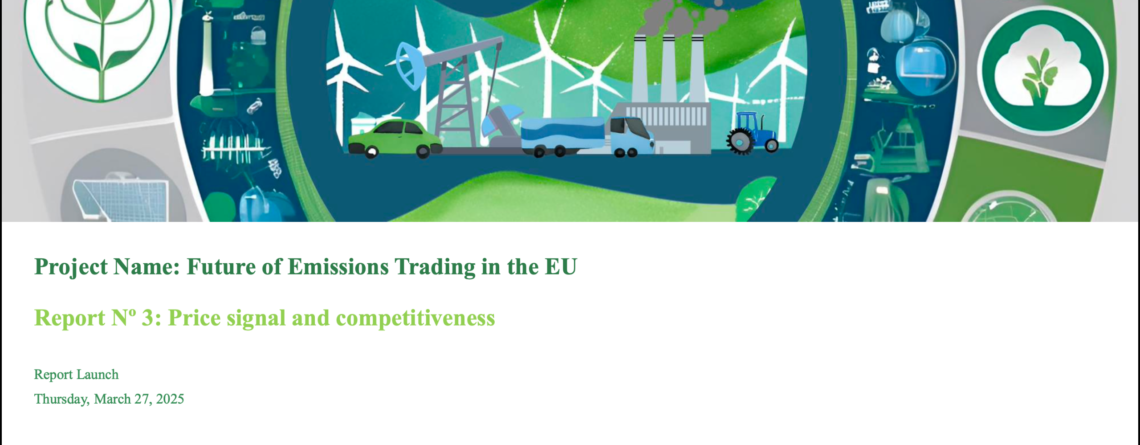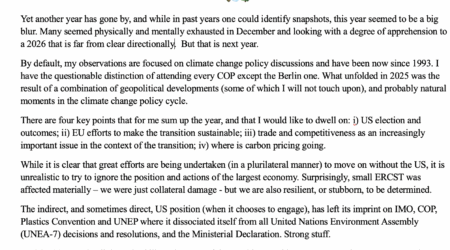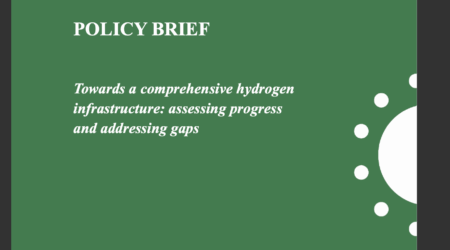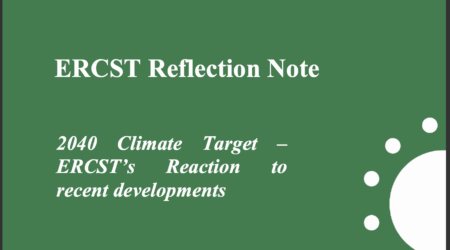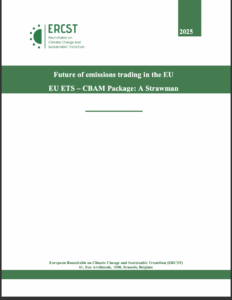Future of Emissions Trading in the EU: Price signal and competitiveness
Author(s): Andrei Marcu, Juan Fernando López Hernández, Alexandra Maratou, Pauline Nouallet, Nigel Caruana
This report explores the role of competitiveness in the evolution of the EU Emissions Trading System (EU ETS), examining how carbon pricing interacts with economic pressures and regulatory frameworks. While competitiveness has traditionally been addressed under the umbrella of carbon leakage, it is inextricably linked to broader international market dynamics and cost structures shaped by climate policies.
Findings of the report include:
- The importance of the relationship between EUA prices and costs where costs impact competitiveness of industry;
- Costs resulting from EU ETS and broader climate change policy cannot be a burden to put into question the viability of industry;
- While prices are needed to drive decarbonization, costs need to be managed and partially socialized, and the role of free allocations further examined;
- Effective measures must be put in place to level the playing field, which are not yet there under current legislation.
This is the third in a series of seven reports planned under ERCST’s recently launched “Future of Emissions Trading in the EU” project. The project aims to examine the architecture, governance and role of emissions trading in meeting EU objectives in the European Climate Law during the second half of Phase IV (2025-2030) and beyond.
The initiative is being supported by: Cefic – CEMBUREAU – Cepi – EDF- Électricité de France – ENEL – EuLA – Eurelectric – Eurofer – Eurometaux – European Aluminium – ExxonMobil – Fertilizers Europe – FuelsEurope – PGE – Danish Ministry of Climate, Energy and Utilities – French Ministry of Ecological Transition – German Federal Ministry for Economic Affairs and Climate Action – Ministry of Climate and Environment of the Republic of Poland


